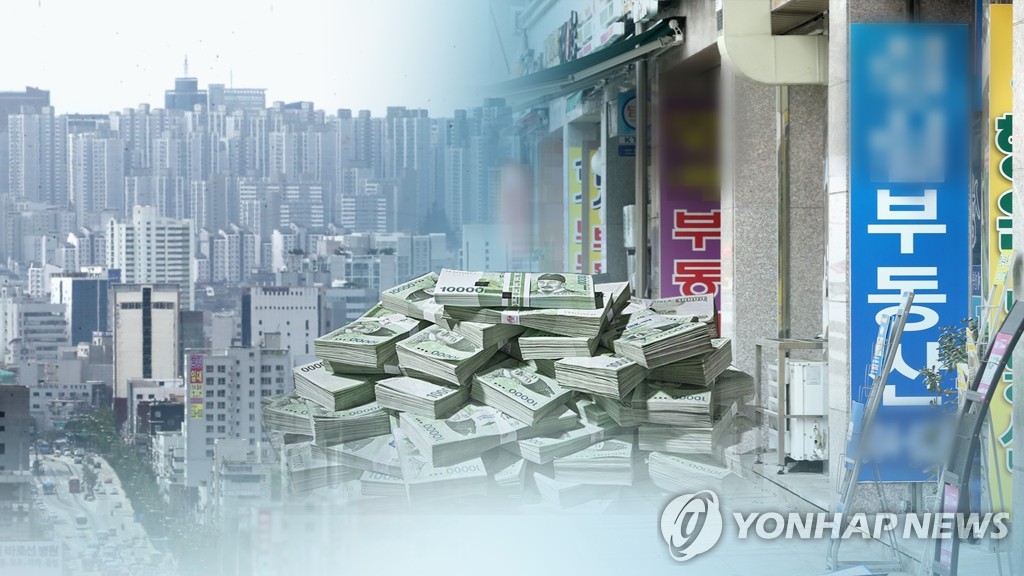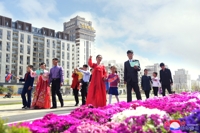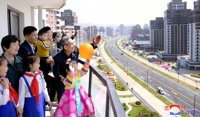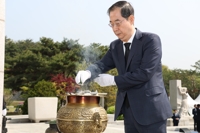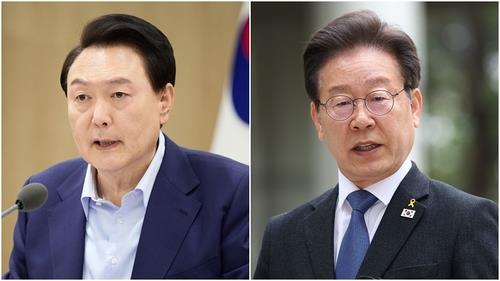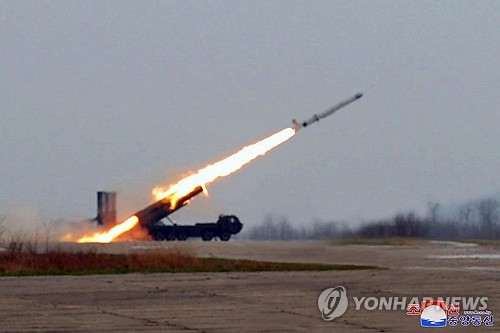(LEAD) Loans by realtors, rental biz owners up sharply: BOK
(ATTN: ADDS details on household loans in last 4 paras; CLARIFIES 3rd para)
SEOUL, Sept. 20 (Yonhap) -- Loans taken out by South Korean individual realtors and lease business operators have risen at a rapid pace that warrants preemptive measures to contain possible fallouts, the central bank said Thursday.
The total value of loans extended to people who run their own businesses came to 590.7 trillion won (US$527.8 billion) as of end-June, up 41.5 trillion from the end of last year, according to the Financial Stability Report by the Bank of Korea (BOK).
The amount includes both business-related borrowing, which reached 379.9 trillion won, and separate household loans worth 210.8 trillion won, taken out by self-employed people.
Of the total, the amount of loans by those in the real estate sector accounted for the largest share, or 40.9 percent, and the figure has risen by an annual average of 18.3 percent since 2014, the BOK said, noting that lending by manufacturers during the cited period grew 2.6 percent.
"Amid quantitative easing in general, ample liquidity has continued to flow into the real estate market, which has shown higher investment return," the BOK noted.
Over the past decade, the return on investment in apartments and individual houses stood at 55.8 percent and 48.9 percent, respectively, far higher than that of stock investment, at 30.1 percent, and bank deposits at 36.3 percent.
This growth in lending has also caused real estate market loan exposure to jump 9.1 percent on-year to 1,797.2 trillion won as of the end 2017, the BOK said, warning that this could cause problems to the overall economy in the event of a slowdown of the country's property market.
"Holders of excessive debt and individual business operators in the housing sector may have difficulties repaying their debts," the BOK said. "It is a must for financial institutions to come up with preemptive measures to the relevant risks."
Housing prices in Seoul and some of its surrounding areas have grown sharply in recent months, which has sparked calls for raising interest rates to curb speculation with cheap money and to resolve household debt problems.
South Korea's current policy rate stands at a low 1.5 percent, unchanged since November of last year. The rate has been maintained in the face of sluggish economic growth and low inflation pressure, according to the BOK.
Also, since the global financial crisis a decade ago, South Korea's household loans grew far faster than those of other member countries of the Organization for Economic Cooperation and Development (OECD), the data compiled by the BOK showed.
The increase rate of outstanding household loans in South Korea stood at an average of 3.1 percentage points between 2009 and 2016, while the average for OECD nations came to a mere 0.4 percentage point.
"OECD member nations have seen their household loans and their incomes rise at a similar pace, but in South Korea, the growth of household income fell far short of the loan increase," the BOK said in the report.
"If such circumstances continue, domestic consumption and economic growth could be stalled, and the overall financial system would be placed at risk," it noted.
graceoh@yna.co.kr
(END)
-
 Overdue debut of Korean abstract art pioneer Yoo Young-kuk at Venice Biennale
Overdue debut of Korean abstract art pioneer Yoo Young-kuk at Venice Biennale -
 Defense chief says N. Korea's hypersonic missile 'unsuccessful' in last-stage glide flight
Defense chief says N. Korea's hypersonic missile 'unsuccessful' in last-stage glide flight -
 Relax, immerse yourself in scents at Venice Biennale's Korean Pavilion
Relax, immerse yourself in scents at Venice Biennale's Korean Pavilion -
 N. Korea has capability to genetically engineer biological military products: U.S. report
N. Korea has capability to genetically engineer biological military products: U.S. report -
 S. Korea marks 30th anniv. of Korean Pavilion at Venice Biennale with contemporary art
S. Korea marks 30th anniv. of Korean Pavilion at Venice Biennale with contemporary art
-
 Overdue debut of Korean abstract art pioneer Yoo Young-kuk at Venice Biennale
Overdue debut of Korean abstract art pioneer Yoo Young-kuk at Venice Biennale -
 Relax, immerse yourself in scents at Venice Biennale's Korean Pavilion
Relax, immerse yourself in scents at Venice Biennale's Korean Pavilion -
 Artist Lee Bae captures ethereal Korean aesthetics at Venice Biennale
Artist Lee Bae captures ethereal Korean aesthetics at Venice Biennale -
 S. Korea marks 30th anniv. of Korean Pavilion at Venice Biennale with contemporary art
S. Korea marks 30th anniv. of Korean Pavilion at Venice Biennale with contemporary art -
 Defense chief says N. Korea's hypersonic missile 'unsuccessful' in last-stage glide flight
Defense chief says N. Korea's hypersonic missile 'unsuccessful' in last-stage glide flight
-
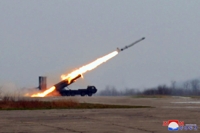 N. Korea says it conducted 'super-large warhead' test for strategic cruise missile
N. Korea says it conducted 'super-large warhead' test for strategic cruise missile -
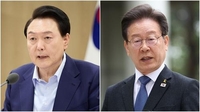 (LEAD) Yoon proposes first-ever meeting with opposition leader
(LEAD) Yoon proposes first-ever meeting with opposition leader -
 (2nd LD) N. Korea says it conducted 'super-large warhead' test for strategic cruise missile
(2nd LD) N. Korea says it conducted 'super-large warhead' test for strategic cruise missile -
 Gov't likely to accept university chiefs' request to lower med school enrollment quota
Gov't likely to accept university chiefs' request to lower med school enrollment quota -
(URGENT) N. Korea conducted 'super-large warhead' test for strategic cruise missile: KCNA

